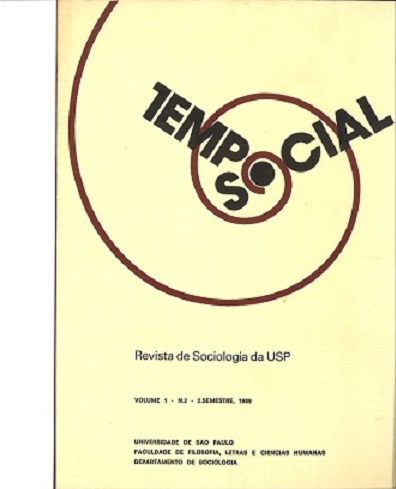Going around the city: a choreography of power
DOI:
https://doi.org/10.1590/ts.v1i2.84774Keywords:
Police violence, Urban violence, police vigilance, CitizenshipAbstract
This article attempts to interpret some dimensions of a common police practice in São Paulo during the 1970´s that consisted in keeping under permanent and minute watch the urban space, through the "rondas", or mobile patrols constantly going around the city. It analysis the reorganization of the police apparatus under the influence of "national security" ideology which, centered on the idea of an "internal enemy", puts under suspicion every citizen, especially the working man, who is thus discriminated against and bears the burden of proving that he is neither part of "marginalized" gangs nor a "bandit". It also discusses how, during this period, the press tends to criticize such practices only for the "excess" of their zeal, going sometimes "too far". Finally, it emphasizes some paradoxal aspects in the "discourse of suspicion", amongs which the most outrageous one: in the name of "good citizens", citizenship itself is destroyed.Downloads
Download data is not yet available.
Downloads
Published
1989-12-01
Issue
Section
Articles
License
Copyright (c) 1989 Tempo Social

This work is licensed under a Creative Commons Attribution-NonCommercial 4.0 International License.
How to Cite
Fernandes, H. R. (1989). Going around the city: a choreography of power. Tempo Social, 1(2), 121-134. https://doi.org/10.1590/ts.v1i2.84774


